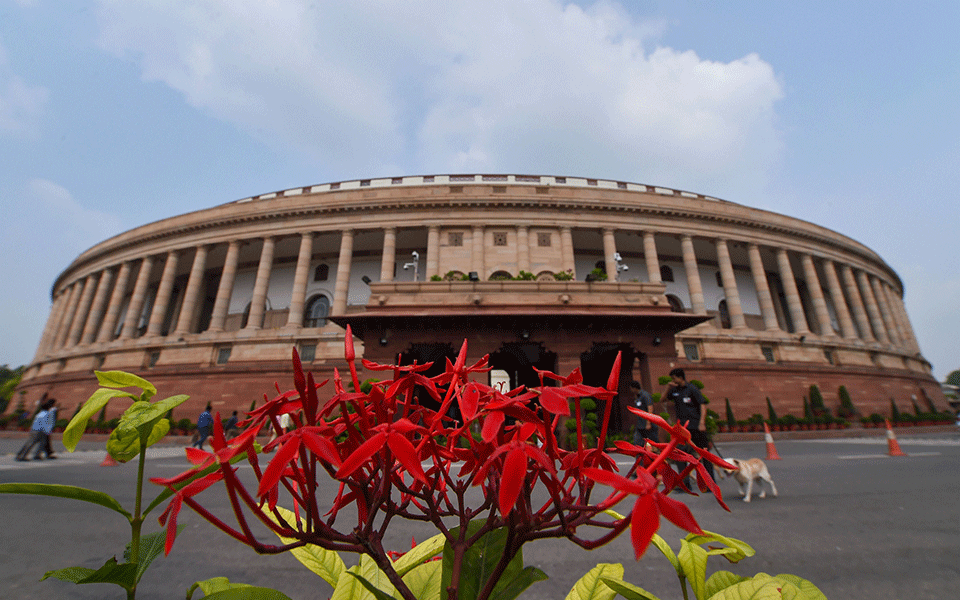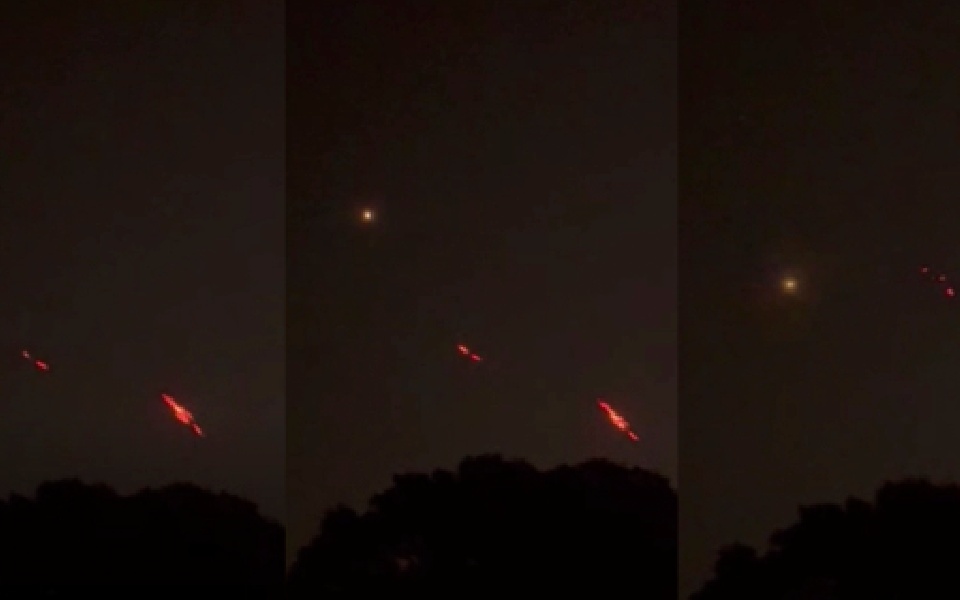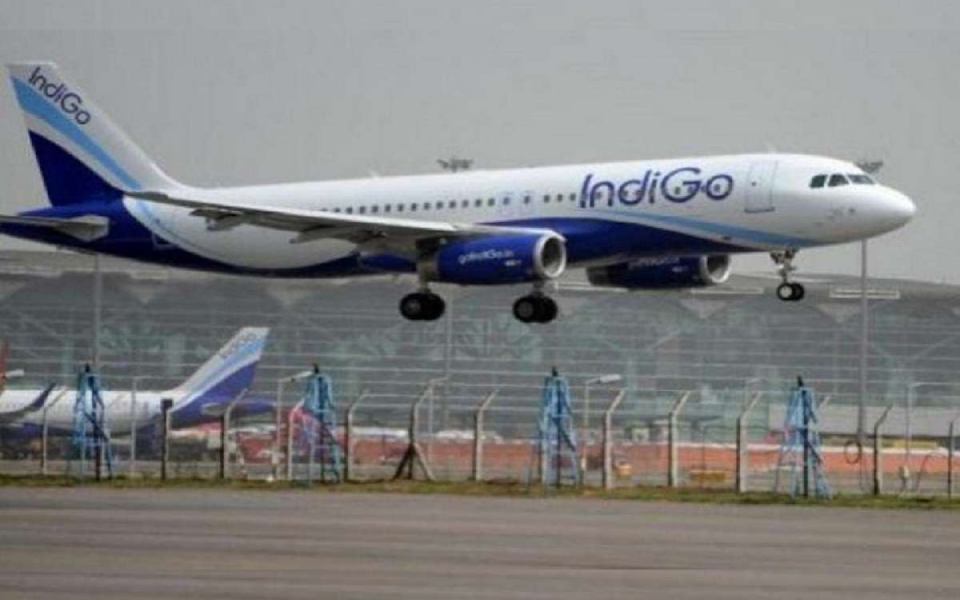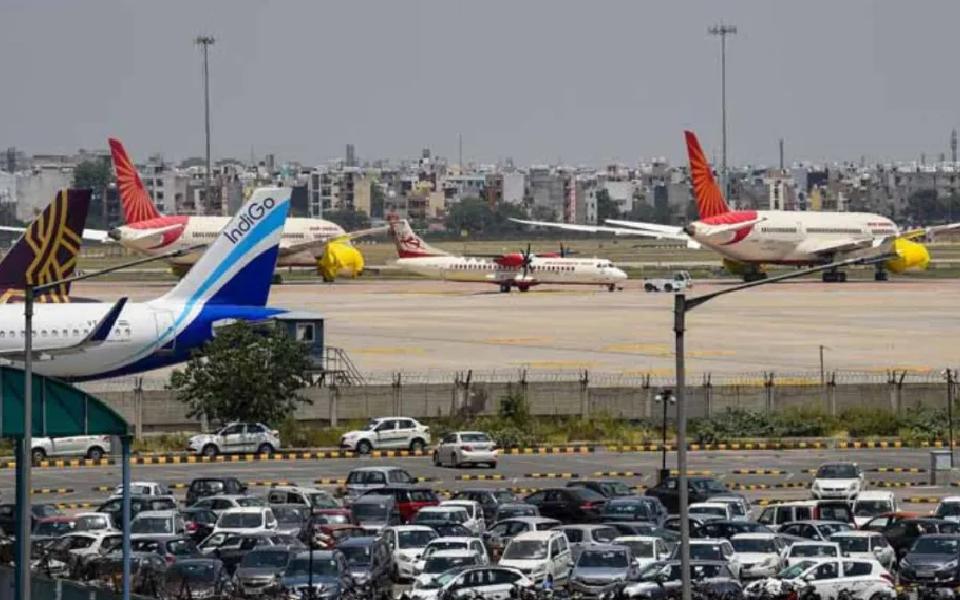New Delhi: Lok Sabha on Friday passed 'The Jallianwala Bagh National Memorial (amendment) Bill, which seeks to remove the Congress president as a trustee, amid vociferous protests from the party members who later walked out.
Piloting the bill, Culture Minister Prahlad Patel asserted that national memorials cannot be "political memorials" and they should be kept away from politics.
The bill was passed by a voice vote amid the Congress walkout. Amendments moved by Opposition parties were defeated by division of votes. A division sought by opposition members at the time of consideration of the bill was defeated with 214 voting in favour and 30 against.
The amendment bill also paves the way for the leader of the single largest opposition party in the Lok Sabha to be a member of the trust. But no such post exists at present as no non-BJP party won the required 10 per cent of total seats to get the status.
As of now, the trust which manages the memorial, has the Prime Minister as the chairperson, President of Indian National Congress, Culture Minister, Leader of Opposition in the Lok Sabha, Punjab governor, Punjab CM as its members.
Replying to the debate on the bill, Patel said the government wants to end politics associated with the Jallianwala Bagh National Memorial Trust.
"It is our belief and principle that politics should be removed from the national memorial and hence the amendments were brought to the 1951 Act," he said.
Patel said there should be no politicisation of the memorial rather there should be nationalisation.
"It should be a great tribute to Udham Singh," he said while questioning Congress party for stopping it from appointing his family members on the board.
As soon as the minister started speaking on the bill, Congress leader Rahul Gandhi entered the house.
Opposing the bill, Congress member Gurjeet Aujla said the government wants to re-write the history by removing the Congress president from the trust.
"This government wants to distort history, destroy history. You cannot remove the sacrifice of the Congress to the country's freedom struggle," he said.
As Aujla attacked the ruling BJP and like-minded organisations for "not taking part in the freedom struggle", the ruling party members countered him with slogans.
"You have no contribution to the country's freedom struggle. Why do you want to control the memorial," he alleged.
Participating in the debate, Akali Dal member and Union Minister Harsimrat Kaur Badal said it was the members of the Congress who were involved in the 1984 riots against Sikhs.
Badal alleged that a person involved in the 1984 anti- Sikh riots has been made chief minister and a close relative of Punjab chief minister had lauded the role of General Dyer who was involved in the Jallianwala Bagh massacre.
"This was a recorded history and you cannot forget it," she said. With this, the Congress countered Badal by shouting slogans and making counter allegations.
At one time, a few members of the Congress were seen showing placards about "drug mafia" in Punjab. Speaking on the bill, AAP MP Bhagwant Mann said Jallianwala Bagh belongs to all.
Giving point by point rebuttal, Patel said no one can rewrite history and nor the Modi government is doing that. It is only reviewing it and acknowledging those who have been forgotten.
He further said majority contribution for acquiring land for the memorial was given by common man and it was also common people who sacrificed their life there.
Taking on Congress, the minister said in 1970 Babu Jagjivan Ram was the president of Congress but then Prime Minister Indira Gandhi was on the board of trust.
And it took more than 40 years for Congress to replace Jawaharlal Nehru, Abdul Kalam Azad and Saifuddin Kitchlew from board of the trust in 2006, he said.
A similar bill was brought by the previous government but it could not get parliamentary nod and lapsed.
The amendment bill also confers power to the central government to terminate the term of a nominated trustee before the expiry of the term without assigning any reason.
Virendra Kataria, Ambika Soni and Harvendra Singh Hanspal are nominated trustees appointed in 2013 for five years, according to the Culture Ministry website.
Jallianwala Bagh memorial was established in 1951 by the central government to mark the massacre of unarmed people on April 13, 1919 by the British Indian Army under the command of Col Reginald Dyer.
Members from various other parties also participated in the debate. BSP's Danish Ali targeted the ruling alliance, saying greats like Gandhi and Sardar Patel are quoted selectively.
In a jibe, he said a bill can be brought in future to undo the fact that Patel as home minister had banned the RSS, the ideological parent of the BJP.
JD(U)'s Ramprit Mandal supported the bill while BJD's B Mahtab opposed it, saying it will bring no harm if the Congress president remains a member of the trust and noted that UPA government had also included the leader of opposition as a member.
"Let us not belittle ourselves by removing the Congress president," Mahtab said.
NCP's Supriya Sule also supported him and said the bill was disappointing. "It looks very petty," she added. DMK leader Dayanidhi Maran said he was ashamed to see acrimonious scenes in the House.
"We respect freedom fighters and I am proud of them. Congress is the only party which fought the freedom struggle. Other parties in the country are a byproduct of Congress," he said. Maran said the BJP got a huge majority in Lok Sabha and it should be magnanimous.
"With great power comes responsibility. But you are not behaving responsibly," he said. He asked the government to withdraw the bill and not to waste the valuable time of the House. Trinamool Congress member Saugata Roy asked the government not to rewrite history.
"Gandhi ji set up the memorial. You want to change the Act after 68 years. I strongly dissent it. You can't rewrite history," he said. Roy said the "BJP's ancestors" were not part of the country's freedom struggle and wanted to change the history.
Let the Truth be known. If you read VB and like VB, please be a VB Supporter and Help us deliver the Truth to one and all.
Jammu, May 12 (PTI): Security forces are engaging suspected drones observed along the International Border in Samba district of Jammu region on Monday, an Army said.
This fresh incident of drone activity along the borderline comes barely hours after Prime Minister Narendra Modi’s first address to the nation following Operation Sindoor and the meeting of the DGMOs of India and Pakistan.
The Army, however, said there is no need to be alarmed.
“A small number of suspected drones have been observed near Samba in J&K. They are being engaged,” it said.
In the backdrop of the situation, several areas witnessed blackouts in Samba, Kathua, Rajouri, and Jammu.
Lights were switched off at the cave shrine of Mata Vaishno Devi and along its track as a precautionary measure, sources said.
On Monday, talks between the DGMOs were held during which issues related to the continuing commitment that both sides must not fire a single shot or initiate any aggressive or inimical action against each other were discussed, the Indian Army said.
It was also agreed that both sides would consider immediate measures to ensure troop reduction along the borders and in forward areas, it added.
The situation remained largely peaceful across Jammu and Kashmir, with no incidents of ceasefire violation reported along the Indo-Pak border Sunday overnight — marking the first calm night after 18 days of hostilities following the Pahalgam terror attack that left 26 people — mostly tourists — dead.
India and Pakistan on Saturday reached an understanding to cease all firing and military actions on land, air, and sea with immediate effect, following four days of intense cross-border drone and missile strikes that brought the two countries to the brink of full-scale war.
Eighteen days of intense hostilities following the Pahalgam terror attack and Operation Sindoor, which brought India and Pakistan to the brink of war, ended with a ceasefire that restored calm along the Line of Control, the International Border, and the hinterland in Jammu and Kashmir. The Army thwarted Pakistan’s Hamas-style kamikaze drone attacks during the escalation.
Since the night of April 24, hours after India suspended the Indus Waters Treaty in response to the Pahalgam terror attack, Pakistani troops repeatedly targeted Indian positions along the LoC — beginning in the Kashmir Valley and quickly expanding to the Jammu region.
The latest hostilities began in the northern districts of Kupwara and Baramulla in the Kashmir Valley, before spreading southwards to Rajouri, Poonch, Akhnoor, and the Pargwal sector along the International Border in Jammu district. The firing affected five border districts — Baramulla, Kupwara, Poonch, Rajouri, and Jammu.
The recent round of cross-border firing further undermined the ceasefire agreement reached in February 2021, which has largely been seen as ineffective due to Pakistan’s frequent violations along the 740-km-long LoC.
The April 22 terror attack, which claimed the lives of 26 people — mostly tourists — in Pahalgam’s Baisaran valley, triggered a strong response from the central government.
The India-Pakistan border stretches over 3,300 kilometers, divided into three segments: the International Border (IB), spanning about 2,400 km from Gujarat to Akhnoor in Jammu; the 740-km-long Line of Control (LoC) that divides Jammu and Kashmir; and the 110-km-long Actual Ground Position Line (AGPL), which separates the Siachen Glacier region.
WATCH: OP Sindoor continues. Minutes after PM Speech.
— Rahul Shivshankar (@RShivshankar) May 12, 2025
A small numbers of suspected drones being observed near Samba in J&K. Being engaged . pic.twitter.com/jmGmRkmQ26





